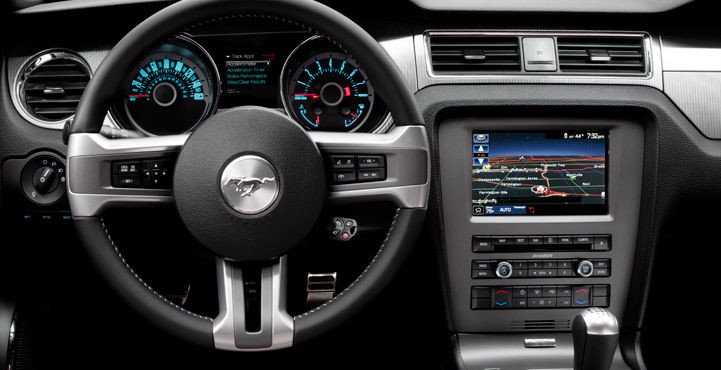Cell Phone-Type Records For Vehicles? Law Enforcement Could Subpoena Data From A Connected Car

Privacy hawks can now add vehicle electronics to the list of technologies that may haunt them if law enforcement or lawyers ever want to know where they’ve been. And when. And for how long.
Automakers say Internet-linked vehicle "telematics" systems found on in-dash, flat-screen interfaces, such as BMW’s ConnectedDrive and Ford’s Sync, collect and keep data regarding a driver’s location at any given time. And lawyers have taken note of this new opportunity to collect evidence to build their cases.
"It certainly is an intriguing new thing," Don Slavik, a product liability lawyer who has worked on litigation involving unintended acceleration in Toyota cars, told Automotive News in a report published Sunday. "It introduces some questions of privacy issues that people aren't aware of. I wasn't aware of some of this stuff until recently."
But the companies that offer these systems as vehicle options have been aware enough that they require users to consent to having their data shared.
“We may use information for any purpose or share it with any third party if we anonymize it so that it no longer reasonably identifies you or your vehicle,” General Motors Co. (NYSE:GM) says in the privacy statement for its OnStar subscription-based telematics systems. More specific driving information could be shared with emergency services or law enforcement, and GM retains the right to review the data “for product safety or security purposes, to protect the safety of you or others, or to help maintain the proper operation of your vehicle.” Other automakers include similar or identical claims in their terms and conditions.
Some privacy experts have pointed out that a court order may not be necessary, either.
"Just the same way that law enforcement can go to your bank or dry cleaner and ask questions about your activities there, they could go to Ford," William McGeveran, law professor at the University of Minnesota, told Business Insider earlier this year. "When your activities give information to a company, you're waiving your reasonable expectation of privacy, so it's not required that there be a warrant."
Vehicle owners and operators are urged to read terms and conditions carefully, because once they agree to give up privacy for a service -- whether it’s Facebook’s social networking service or Toyota's Entune telematics system -- they are releasing a certain degree of privacy to the Web.
In some cases, the data can be provided by the auto companies directly and in others it would require physical access to the car’s electronics. But one thing is certain: Cars have become essentially large Internet-connected mobile devices with all the advantages and disadvantages that entails.
© Copyright IBTimes 2024. All rights reserved.




















